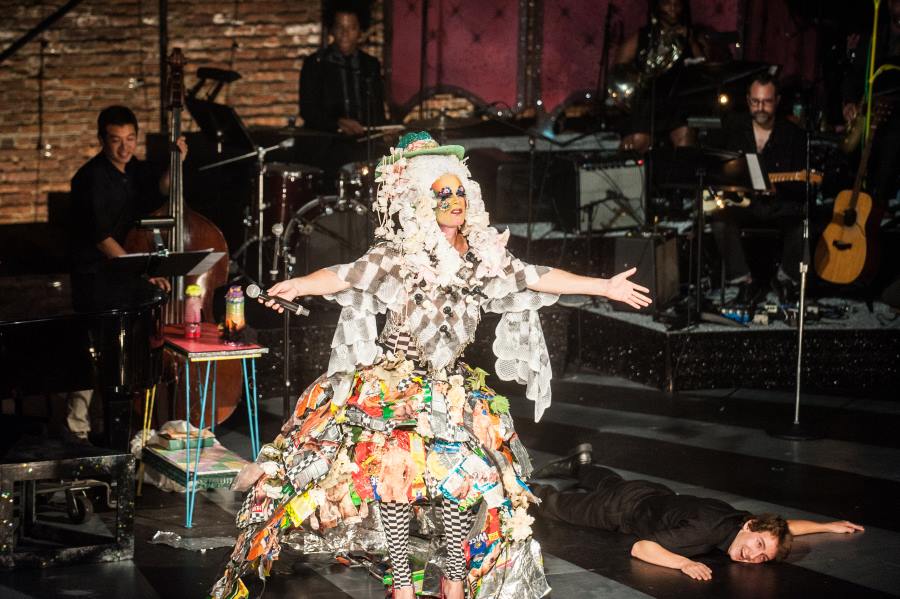NEW YORK CITY: Taylor Mac and Matt Ray’s A 24-Decade History of Popular Music has won the 2017 Edward M. Kennedy Prize for Drama Inspired by American History, presented by Columbia University and Ambassador Jean Kennedy Smith. The prize comes with $100,000, and will be presented to the artists at a ceremony in the spring.
“A vast, immersive, subversive, audacious and outrageous theatre experience, Mac’s and Ray’s piece employs a variety of performance techniques to illuminate and explode our country’s history as seen through the lens of its popular music,” said the jury in a statement. “This piece shows, in Mac’s words, how ‘in America, the oppressor is forgiven but the outsider is vilified.'”
The piece was produced by Pomegranate Arts and Nature’s Darlings. It was presented last year at St. Ann’s Warehouse in Brooklyn. The piece was described by Mac as a “radical fairy realness ritual,” where 246 songs popular in America from 1776 to 2016 were performed by Mac (with musical arrangements by Ray). Last year, it was performed in nightly three-hour installments that focused on particular decades in American history, and culminated in a final 24-hour marathon performance (AT‘s Suzy Evans was in the audience for the marathon).
The finalists for the 2017 Kennedy prize were Roe by Lisa Loomer, Vietgone by Qui Nguyen, Sweat by Lynn Nottage, and Indecent by Paula Vogel.
The jury for the 2017 prize included: Carol Becker, dean of the School of the Arts, Columbia University; playwright Amy Herzog; playwright Quiara Alegría Hudes; Rashid Khalidi, professor of modern Arab studies, Columbia University; playwright/director Robert O’Hara; playwright Kate Moira Ryan; James Shapiro, professor of English and comparative literature, Columbia University; composer Imani Uzuri; and playwright Tracey Scott Wilson.
The Kennedy Prize was created by Ambassador Smith, in honor of her brother, the late Senator Kennedy. The prize is announced every year on or near his birthday, Feb. 22. It was created to “galvanize a new and vigorous exploration of American history and the institutions of American politics among dramatists and creators of musical theater.”


